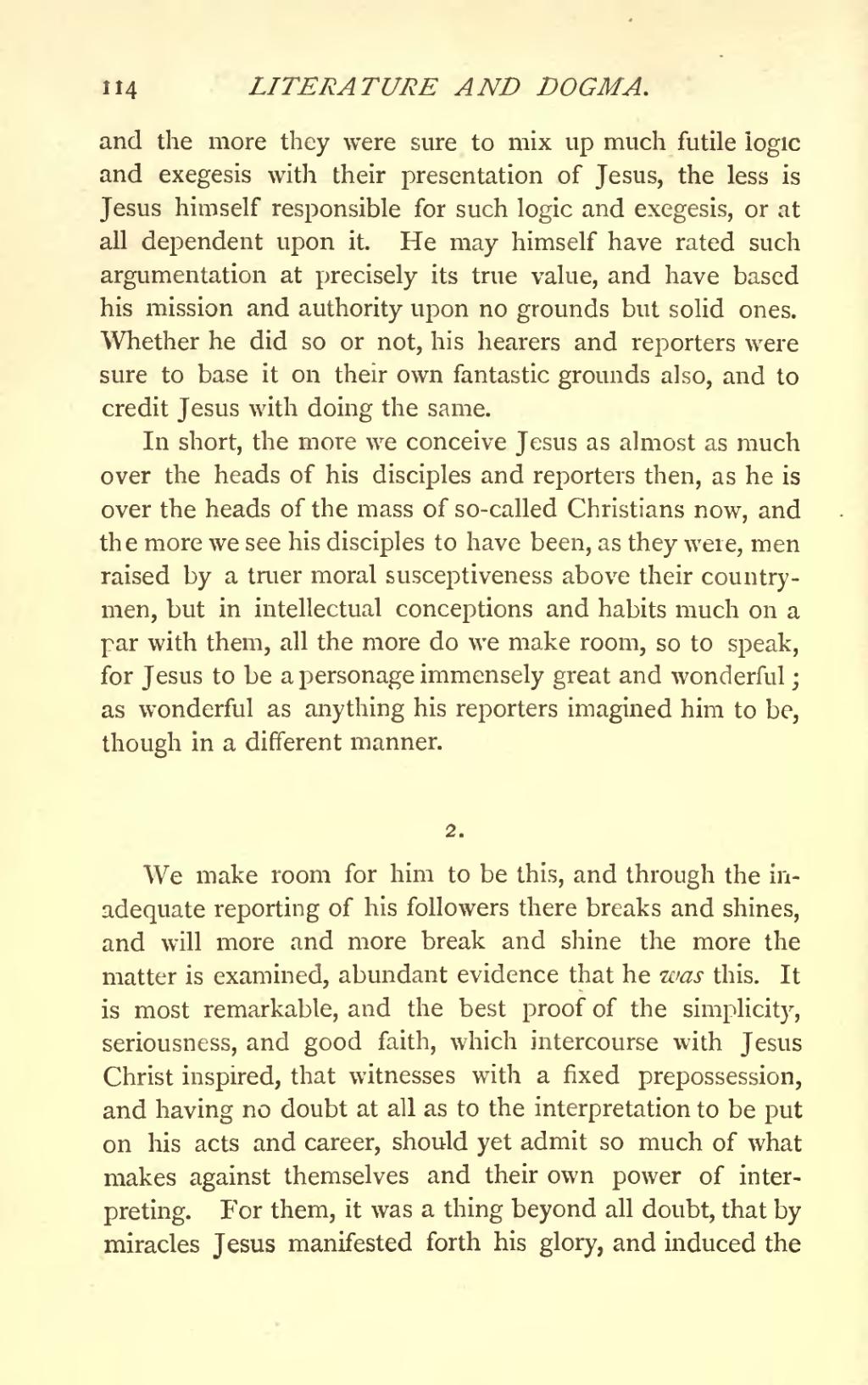and the more they were sure to mix up much futile logic and exegesis with their presentation of Jesus, the less is Jesus himself responsible for such logic and exegesis, or at all dependent upon it. He may himself have rated such argumentation at precisely its true value, and have based his mission and authority upon no grounds but solid ones. Whether he did so or not, his hearers and reporters were sure to base it on their own fantastic grounds also, and to credit Jesus with doing the same.
In short, the more we conceive Jesus as almost as much over the heads of his disciples and reporters then, as he is over the heads of the mass of so-called Christians now, and the more we see his disciples to have been, as they were, men raised by a truer moral susceptiveness above their country men, but in intellectual conceptions and habits much on a par with them, all the more do we make room, so to speak, for Jesus to be a personage immensely great and wonderful; as wonderful as anything his reporters imagined him to be, though in a different manner.
We make room for him to be this, and through the inadequate reporting of his followers there breaks and shines, and will more and more break and shine the more the matter is examined, abundant evidence that he was this. It is most remarkable, and the best proof of the simplicity, seriousness, and good faith, which intercourse with Jesus Christ inspired, that witnesses with a fixed prepossession, and having no doubt at all as to the interpretation to be put on his acts and career, should yet admit so much of what makes against themselves and their own power of interpreting. For them, it was a thing beyond all doubt, that by miracles Jesus manifested forth his glory, and induced the
